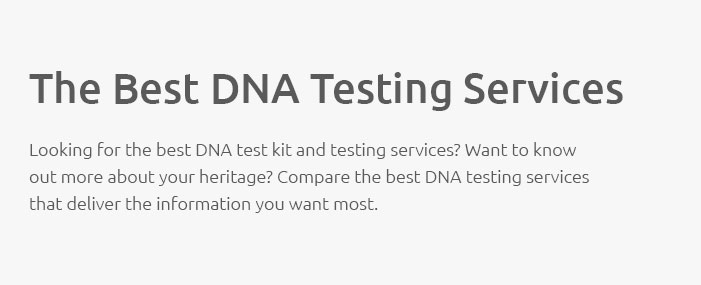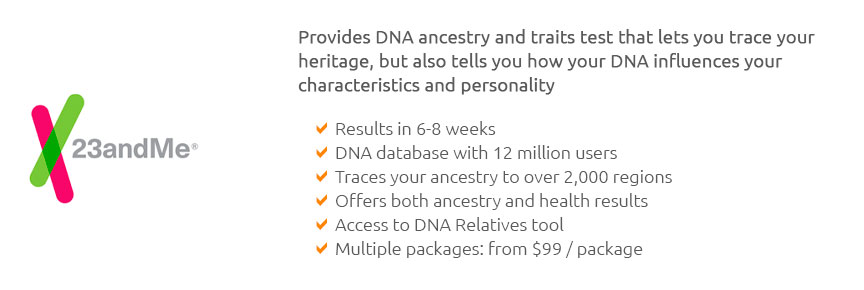 |
 |
 |
|---|
 |
 |
|---|
 |
|
|---|---|
 |
 |
 |
 |
 |
 |
 |
 |
 |
 |
 |
 |
 |
 |
 |
 |
|---|
Exploring DNA Medical Tests: A Comprehensive OverviewIn recent years, DNA medical tests have revolutionized the healthcare landscape, offering individuals unprecedented insights into their genetic makeup. As these tests become more accessible, a plethora of options have emerged, each with its own set of advantages and limitations. Understanding the nuances of these tests can be challenging, yet it is crucial for making informed decisions about one's health. Let's delve into some of the most popular DNA medical tests available today, comparing their features and implications. First, 23andMe has carved out a niche in the consumer genetic testing market. Known for its user-friendly interface and comprehensive reports, 23andMe provides information on ancestry as well as health-related genetic markers. The test is particularly valued for its simplicity and the breadth of data it offers. However, some critics argue that its health reports are somewhat limited, focusing primarily on common genetic variants, which might not capture the full complexity of genetic predispositions. Next, we have AncestryDNA, which, as the name suggests, is predominantly focused on tracing lineage and family history. While its primary strength lies in its expansive genealogical database, AncestryDNA also provides some health insights through its AncestryHealth upgrade. For individuals with a keen interest in their familial roots, this test can be an invaluable resource. Yet, it's worth noting that its health information is less comprehensive than some of its competitors, potentially limiting its utility for those primarily interested in medical insights. MyHeritage DNA is another prominent player, offering a balance between ancestry and health information. Its competitive pricing and growing database make it an attractive option for those new to genetic testing. The test's integration with MyHeritage's family tree services is a notable advantage for genealogy enthusiasts. However, as with AncestryDNA, its health-related offerings are not as robust as those of some other providers. On the more specialized end of the spectrum, Invitae and Color Genomics stand out for their focus on medical-grade genetic testing. These tests are often used in clinical settings to assess the risk of hereditary diseases, such as certain cancers and cardiovascular conditions. While these tests are more expensive and require a healthcare provider's involvement, they offer detailed insights that are invaluable for individuals with a family history of specific conditions. The depth of information provided by Invitae and Color Genomics is unmatched, yet their specificity might make them less appealing for those seeking a broader overview of their genetic health. In conclusion, the world of DNA medical tests is vast and varied, each option tailored to different needs and priorities. For those interested in ancestry, 23andMe and AncestryDNA offer compelling services with unique strengths. Meanwhile, individuals seeking detailed health insights might find Invitae and Color Genomics to be more aligned with their requirements. Ultimately, the choice of a DNA test should be guided by personal health goals and curiosity, balanced with a consideration of the depth and scope of information provided. As we stand on the brink of further genetic discoveries, one thing is certain: the role of DNA testing in personalized medicine will only continue to grow, shaping the future of healthcare in ways we are only beginning to understand. https://www.natera.com/
Dedicated to oncology, women's health, and organ health. Natera's cell-free DNA tests help protect health and inform more personalized decisions about care. https://www.23andme.com/dna-health-ancestry/?srsltid=AfmBOoqr5N_WgR8E1hiZk7cN_mDPU329VhU9oJWhXNTnjw6wLDUI6joO
The 23andMe Health + Ancestry kit offers DNA testing with 150+ personalized genetic reports including actionable health insights, ancestry, traits and more. https://www.23andme.com/?srsltid=AfmBOoonsu3uQ_npnjHdTi13Go3AJAKn165QnexcM8nj4lkRyMpoB9a8
23andMe offers DNA testing with the most comprehensive ancestry breakdown, personalized health insights and more.
|
|---|